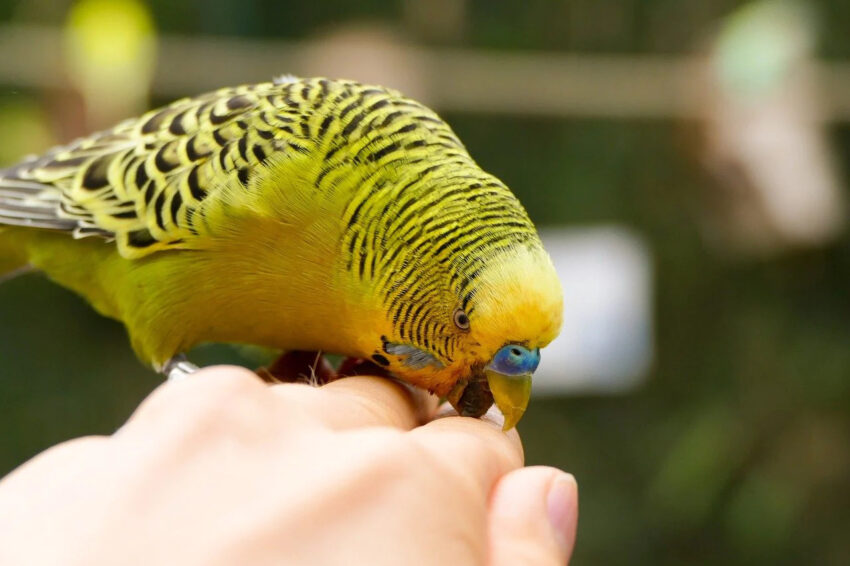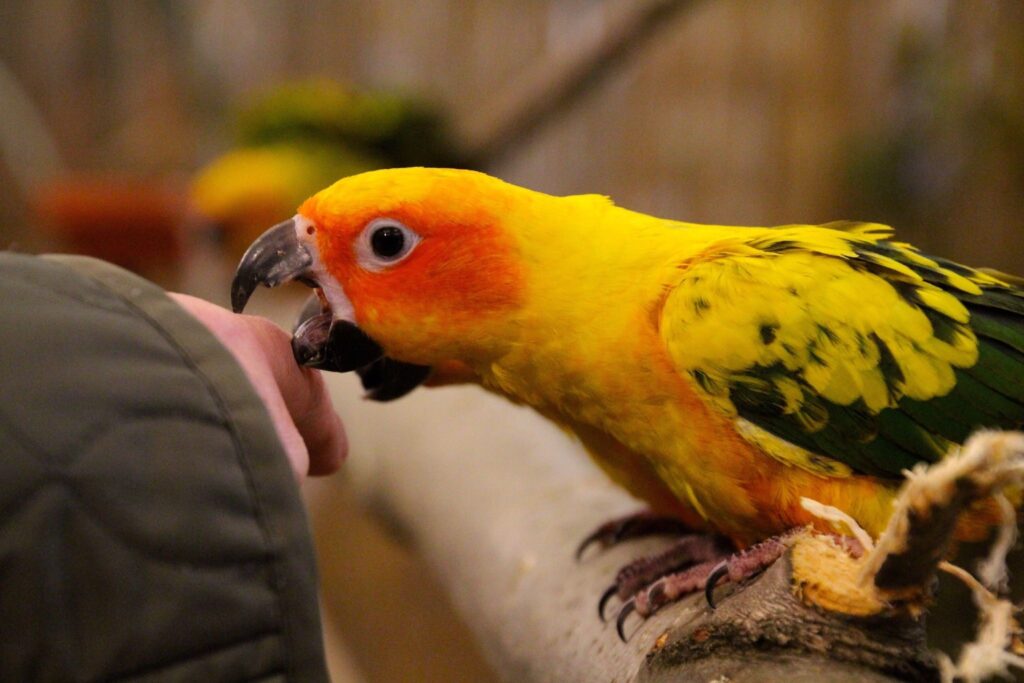Have you ever been bitten by a parrot? If you have, you know how painful and shocking it can be. But why do parrots bite, and how hard can they really bite? In this article, we’ll explore parrot behavior, the reasons behind biting, and how to prevent bites. This content is prepared by homepetusa.
Parrots are intelligent and social birds that make great pets. They can learn to mimic human speech, have vibrant colors, and have a long lifespan. However, they can also be challenging pets, especially if they are not socialized or trained properly. One common issue with parrots is biting.
Reasons for Biting

Parrots can bite for a variety of reasons. Here are some of the most common:
Territorial behavior
Parrots are territorial creatures and can become aggressive when they feel their space is being invaded. This is especially true when they are in their cages or around their favorite toys or food. Read also: HOW MUCH DOES CAT FOOD COST PER MONTH
Fear or anxiety
Parrots can also bite when they feel scared or anxious. This can happen when they are introduced to new people, pets, or environments.
Hormonal changes
During the breeding season, parrots can become more aggressive and territorial. This is especially true for male parrots, who may become more aggressive towards their owners.
Illness or injury
Parrots may also bite if they are sick or injured. In this case, biting is a defense mechanism to protect themselves from further harm.
How Hard Can a Parrot Bite?
Parrots have powerful beaks that are designed for cracking nuts and seeds. Depending on the species, a parrot’s bite can range from gentle nibbles to painful pinches. The force of a parrot’s bite is measured in pounds per square inch (PSI).
For example, a cockatiel’s bite is around 200 PSI, while a macaw’s bite can exceed 2000 PSI. To put that into perspective, a human bite force is around 160 PSI on average.
It’s important to note that the force of a parrot’s bite can also vary depending on the circumstances. For example, if a parrot is scared or angry, it may bite harder than it would during playtime.
Preventing Bites
Preventing parrot bites requires understanding their behavior and needs. Here are some tips for avoiding bites:
Socialization and training
Socializing your parrot from a young age can help prevent biting. Training your parrot to step up on your hand or to do tricks can also help build trust and prevent aggressive behavior.
Recognize warning signs
Parrots often give warning signs before biting, such as fluffing up their feathers, hissing, or lunging. Learning to recognize these signs can help you avoid bites.
Avoid triggering behavior
Avoid behaviors that can trigger biting, such as invading your parrot’s space or taking away their favorite toy or food.
Provide mental and physical stimulation
Boredom can also lead to biting. Providing your parrot with plenty of toys, perches, and opportunities to exercise can help prevent aggression.
Conclusion
Parrots are intelligent and social creatures that make great pets, but they can also be challenging. Understanding parrot behavior and the reasons for biting can help prevent painful and potentially dangerous bites. By socializing, training, and providing mental and physical stimulation, you can build a trusting relationship with your parrot and avoid aggressive behavior.



